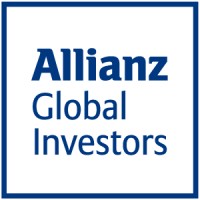China’s Financial Market: A New Dawn for Foreign Investors
August 22, 2024, 4:28 pm

Location: United Kingdom, England, City of London
Employees: 10001+
Founded date: 1969
China's financial landscape is shifting. The recent Third Plenary Session of the 20th Communist Party of China Central Committee has set the stage for significant reforms. This meeting, held in mid-July, has opened the floodgates for foreign institutional investors. The message is clear: China is ready to embrace the world.
The arrival of Allianz Global Investors marks a pivotal moment. Their launch of an equity investment fund in China is not just a drop in the ocean; it’s a signal that the tide is turning. Dozens of foreign financial institutions are now eager to plant their flags in Chinese soil. They see opportunity where others see risk.
Optimism is palpable. Foreign institutions are buzzing with excitement about China's long-term growth prospects. The economy is showing signs of resilience. Trade is picking up, and import-export volumes are at record highs. This momentum is a breath of fresh air, injecting vitality into the economy.
DBS China has raised its growth forecast for the Chinese economy from 4.5% to 5%. This upward revision reflects a broader confidence in the market. The bank is focusing on sectors ripe for investment: technology, pharmaceuticals, and consumer goods. These areas are not just trends; they are the backbone of China's economic future.
The expansion of foreign banks is noteworthy. Standard Chartered Bank has opened a private wealth management branch in Beijing, catering to high-net-worth families. UBS Futures is celebrating a decade in China, leveraging its status as the first foreign institution to gain Qualified Foreign Institutional Investor (QFII) status. These moves are not mere business decisions; they are strategic plays in a larger game.
China’s commitment to reform is evident. Over 50 measures have been introduced to enhance financial openness. Foreign ownership caps in banking and insurance have been lifted. This is not just a nod to globalization; it’s a full embrace. The National Financial Regulatory Administration (NFRA) reports that 24 foreign Global Systemically Important Banks (GSIB) have established a presence in China. Nearly half of the world’s top 40 insurance companies are now in the market.
Yet, challenges remain. The capital market has made strides, but there is room for improvement. Investor yields are still lackluster. Major stock indexes often fail to reflect the true economic landscape. Calls for structural reforms are growing louder. New laws and regulations are needed to elevate the market to new heights.
The Third Plenary Session emphasized a commitment to reform. The resolution adopted sends a strong signal: China is serious about opening its financial markets. The government aims to facilitate foreign equity and venture capital investments. A new management model is on the horizon, one that supports qualified foreign capital institutions.
Chinese regulators are not sitting idle. They are actively crafting initiatives to deepen reforms. The goal is to enhance connectivity between domestic and international markets. This is not just about attracting foreign capital; it’s about creating a symbiotic relationship. Foreign institutions are seen as bridges to the global market, essential for long-term growth.
The vision is ambitious. The Chinese government is exploring a multi-level custody system. This will allow overseas investors to engage with local custodians directly. It’s a step towards simplifying access and enhancing trust. The aim is to create an inclusive environment where foreign investors feel secure and valued.
DBS China is positioning itself as a key player in this evolving landscape. The bank is ready to coordinate resources and networks to support new quality productivity forces in China. This is not just about financial transactions; it’s about fostering innovation and growth.
The winds of change are blowing through China’s financial markets. The Third Plenary Session has laid the groundwork for a new era. Foreign investors are no longer just spectators; they are active participants in China’s economic story. The potential is vast, and the opportunities are ripe for the taking.
As China continues to reform and open its doors wider, the world is watching. The message is clear: China is ready to play on the global stage. The financial market is evolving, and those who seize the moment will reap the rewards. The future is bright, and the possibilities are endless.
In conclusion, the Third Plenary Session has not just charted a path for reforms; it has ignited a movement. The financial market is a canvas, and foreign investors are the artists. Together, they will paint a picture of growth, innovation, and collaboration. The dawn of a new financial era in China is here, and it promises to be transformative.
The arrival of Allianz Global Investors marks a pivotal moment. Their launch of an equity investment fund in China is not just a drop in the ocean; it’s a signal that the tide is turning. Dozens of foreign financial institutions are now eager to plant their flags in Chinese soil. They see opportunity where others see risk.
Optimism is palpable. Foreign institutions are buzzing with excitement about China's long-term growth prospects. The economy is showing signs of resilience. Trade is picking up, and import-export volumes are at record highs. This momentum is a breath of fresh air, injecting vitality into the economy.
DBS China has raised its growth forecast for the Chinese economy from 4.5% to 5%. This upward revision reflects a broader confidence in the market. The bank is focusing on sectors ripe for investment: technology, pharmaceuticals, and consumer goods. These areas are not just trends; they are the backbone of China's economic future.
The expansion of foreign banks is noteworthy. Standard Chartered Bank has opened a private wealth management branch in Beijing, catering to high-net-worth families. UBS Futures is celebrating a decade in China, leveraging its status as the first foreign institution to gain Qualified Foreign Institutional Investor (QFII) status. These moves are not mere business decisions; they are strategic plays in a larger game.
China’s commitment to reform is evident. Over 50 measures have been introduced to enhance financial openness. Foreign ownership caps in banking and insurance have been lifted. This is not just a nod to globalization; it’s a full embrace. The National Financial Regulatory Administration (NFRA) reports that 24 foreign Global Systemically Important Banks (GSIB) have established a presence in China. Nearly half of the world’s top 40 insurance companies are now in the market.
Yet, challenges remain. The capital market has made strides, but there is room for improvement. Investor yields are still lackluster. Major stock indexes often fail to reflect the true economic landscape. Calls for structural reforms are growing louder. New laws and regulations are needed to elevate the market to new heights.
The Third Plenary Session emphasized a commitment to reform. The resolution adopted sends a strong signal: China is serious about opening its financial markets. The government aims to facilitate foreign equity and venture capital investments. A new management model is on the horizon, one that supports qualified foreign capital institutions.
Chinese regulators are not sitting idle. They are actively crafting initiatives to deepen reforms. The goal is to enhance connectivity between domestic and international markets. This is not just about attracting foreign capital; it’s about creating a symbiotic relationship. Foreign institutions are seen as bridges to the global market, essential for long-term growth.
The vision is ambitious. The Chinese government is exploring a multi-level custody system. This will allow overseas investors to engage with local custodians directly. It’s a step towards simplifying access and enhancing trust. The aim is to create an inclusive environment where foreign investors feel secure and valued.
DBS China is positioning itself as a key player in this evolving landscape. The bank is ready to coordinate resources and networks to support new quality productivity forces in China. This is not just about financial transactions; it’s about fostering innovation and growth.
The winds of change are blowing through China’s financial markets. The Third Plenary Session has laid the groundwork for a new era. Foreign investors are no longer just spectators; they are active participants in China’s economic story. The potential is vast, and the opportunities are ripe for the taking.
As China continues to reform and open its doors wider, the world is watching. The message is clear: China is ready to play on the global stage. The financial market is evolving, and those who seize the moment will reap the rewards. The future is bright, and the possibilities are endless.
In conclusion, the Third Plenary Session has not just charted a path for reforms; it has ignited a movement. The financial market is a canvas, and foreign investors are the artists. Together, they will paint a picture of growth, innovation, and collaboration. The dawn of a new financial era in China is here, and it promises to be transformative.

